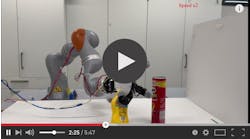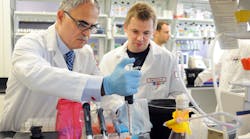Liberty Electric Cars Completes Prototype of Electric Delivery Vehicle
With the goal of reducing the environmental impact of emissions in urban areas by 40%, the European Commissions’ 7th Framework Program was created in 2011. To achieve this goal , the plan was to construct an electric light commercial vehicle that met the needs of inner city traffic with the advantages of electric vehicles.
Next week the “DELIVER” - an electric delivery vehicle will make its world premiere at FISITA World Automotive Congress.
The vehicle was built by Liberty Electric Cars, which is a subsidiary of Green Automotive Co. Liberty played a key role in the development of the battery, the battery management system and the integration of all the vehicle electrical systems in the development of this vehicle.
It is a light weight commercial vehicle of 2,200 kg GVW and a payload of 700 kg, with 18% additional capacity when compared with today’s vans of a similar wheelbase, Green Automotive says.
The concept deploys current electric vehicle technologies with a fully electric drive train featuring in-wheel motors with 2-speed transmission and 80 prismatic Li-NMC cells in its battery pack to increase energy efficiency and total range. It has a minimum range of 100 km and a top speed of 100 km/h,
An extended testing phase on the test tracks at the Aldenhoven Testing Center, RWTH Aachen University’s new testing ground, enabled the project partners to analyze performance indicators such as energy efficiency, dynamic & static structural performance, active & passive safety, ergonomics or range.
The project, which is co-funded by the European Commission as part of the European Green Vehicles Initiative, is coordinated by Institute for Automotive Engineering of RWTH Aachen University and gathers ten partners from across Europe, including major OEMs, research partners and cities’ representatives. The consortium comprises Fiat (IT), Volkswagen (DE), Liberty Electric Cars (UK), Michelin (CH), Polis Network (BE), SP – Technical Research Institute of Sweden (SE), HPL Prototypes (UK) as well as CADEM und Mobit.











